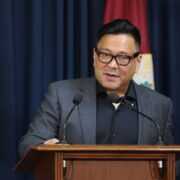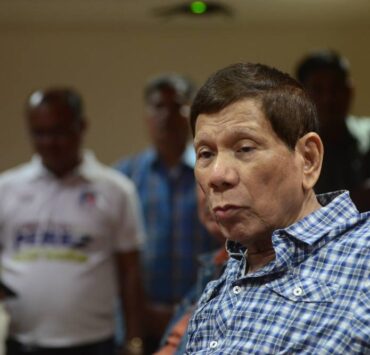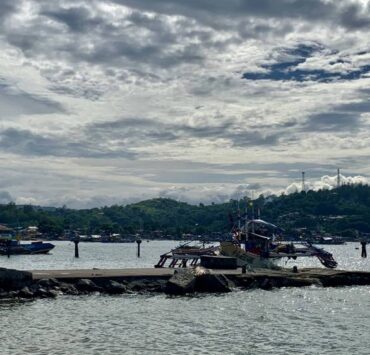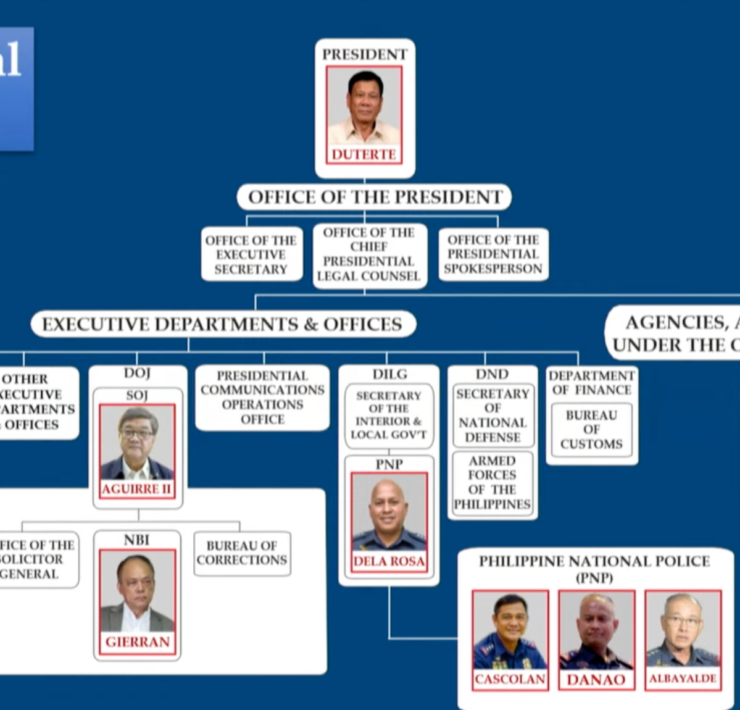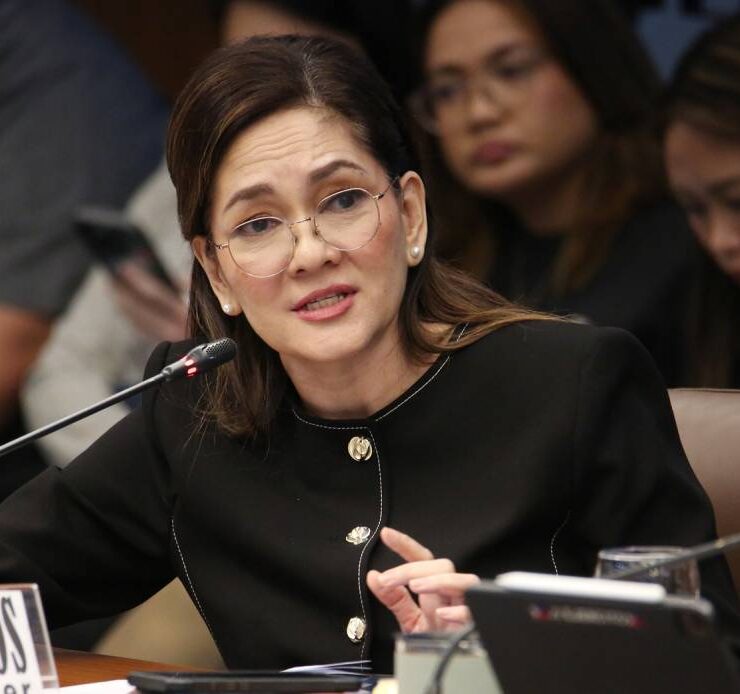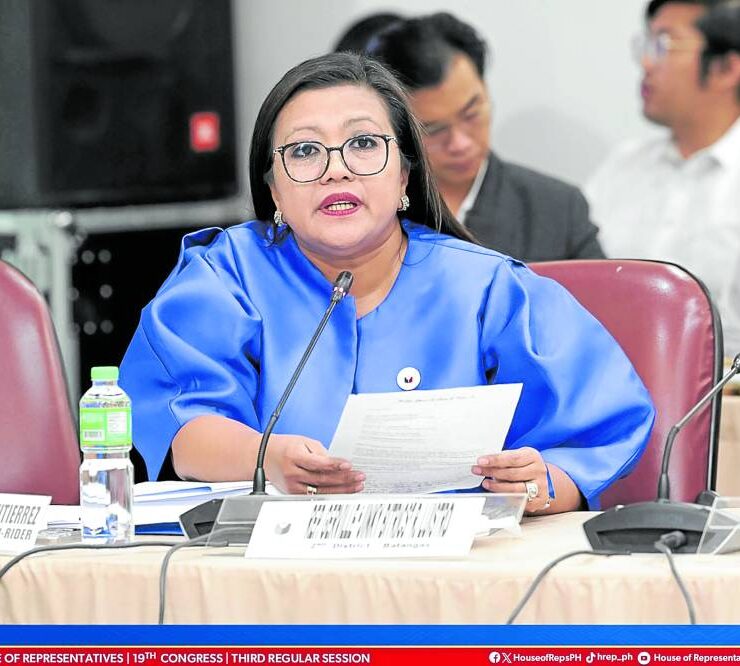PH caregivers in US air fears in time for Marcos visit
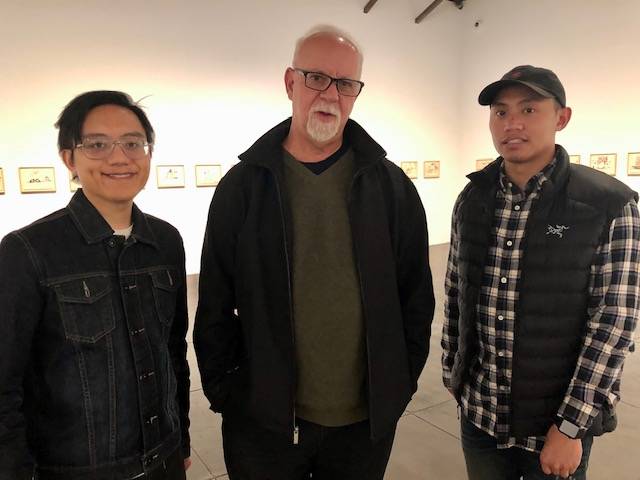
LOS ANGELES—One was routinely denied sleep. Another shared a couch with a dog. Many others worked round-the-clock, paid pittance wages and denied overtime pay.
One was even forced to borrow money from wages already stolen from her.
But all these litany of woes—and obvious violations of US labor laws—pale in comparison to this clear and present danger facing them: the fear of being arrested and deported to their home country after years of working in the United States.
These are the vexing and complex problems facing Filipino caregivers—most of them undocumented—in an America reeling from the return to power of anti-immigrant President Donald Trump.
“We are overworked and underpaid, but we have to endure. This risk [of deportation] is worth taking because what do we have back home?” asked Jay, a caregiver based in San Francisco.
‘Raise our voices’
On Wednesday afternoon (Thursday morning in Manila), caregivers from several US states converged on Zoom, the popular cyber-conferencing platform that they hope will reach President Marcos during his fifth visit to the United States beginning Saturday.
These essential but largely invisible workers in America’s billion-dollar health-care industry showed a semblance of unity in their attempt to air their grievances of alleged exploitation and abuse to Mr. Marcos, who cannot meet them, however, because of time constraints.
“We might not be even on the President’s agenda, But still we try to raise our voices,” said Lester Ramos, a caregiver from Long Beach, California, his Ilocano accent amusing almost everyone in the online forum.
Hard work, exploitation
“I’m hurting from working 24-four hours. I’m tired. But it doesn’t matter. We are providing for our loved ones back home,” said Lei, a mother with five grown children in the Philippines.
According to Lei, a long-time caregiver in San Francisco, powerful Filipinos are behind some of the nursing facilities committing rampant violations of labor laws.

Some of these have been reported and documented by Migrante USA, the coalition of migrant rights advocates who sponsored the forum.
Sought mostly for their gentle—some say servile—ways, Filipino caregivers are preferred by nursing home employers because of their hard work and dedication to caregiving. But some with undocumented status make them vulnerable to abuse and exploitation.
“When I got sick with Covid in 2020, I was forced to borrow money from wages already stolen from me,” said Maria, a 68-year-old widow from Naga City who arrived in Seattle, Washington, in 2000.
Critical shortage
Foremost on their minds today are President Trump’s draconian budget that is now the law of the land and how, starting next year, it might result in the loss of their health-care insurance and in a 3.5-percent tax on the remittances they send to their loved ones in the Philippines.
“Kulang na nga kami ng kita, bubuwisan pa (Our take-home pay is not enough as it is. Now it will be reduced some more because of this tax),” said Floserfina, a 65-year-old former schoolteacher from Baler, Aurora.
But the thought of being expelled from a country they have come to love gives them sleepless nights.
“Women from the Philippines—some with legal status, some without—make up a sizable portion of the workforce in California,” American journalist Steve Lopez wrote recently.
His prominent voice and influential column in the Los Angeles Times has brought to the fore a critical problem that is about to engulf America in a few years—the critical shortage of caregivers in a rapidly aging population.
“If people taking care of our elders get deported, will anyone take their place?” Lopez asked, suggesting that the biggest elephant in the Room—the problem of undocumented caregivers—should be dealt with if America is to avert a major social catastrophe.
Another prominent voice defending the work of Filipino caregivers is Ysabel Jurado, the first Filipino-American elected to the city council of Los Angeles.
“Their work reflects the deepest values of our communities: compassion, service and interdependence,” Jurado said.
“Their labor is essential and their humanity must be honored,” she told reporters on June 14 when federal agents descended on this city, causing widespread fear and panic.
The images on the news of marauding masked men with AR-15 rifles rounding up migrants have spooked the living daylights out of Jurado’s supporters.
“I used to ride the bus to work. Now I take Uber, more expensive but at least I don’t have to run, when ICE (Immigration and Customs Enforcement) agents come,” said Adelina, a caregiver based in Eagle Rock, a city in California that is part of Jurado’s bailiwick.
“Our consuls have become deaf and dumb. They have become useless,” said Eric Orpina, a caregiver working in New York.
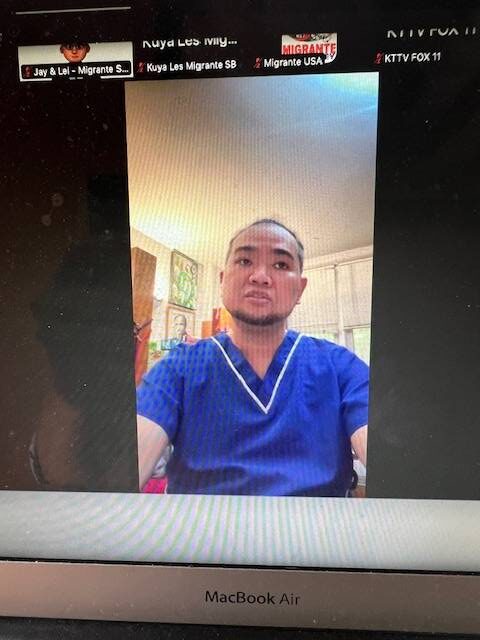
Fighting back tears, Orpina said he had endured physical and mental abuse to the point that he sleeps in a couch with a dog, while taking care of a portly, 6-foot elderly American.
“That is not true! I strongly refute that! We always help anyone who comes to us for help,” said Adelio Angelito Cruz, the consul general in Los Angeles, in a telephone interview with this reporter.
“We always think about our kababayans and their welfare in mind, even to the point of endangering our personal safety,” he said.
Cruz cited an announcement last month by Philippine Ambassador to the US Jose Manuel Romualdez that all consuls in North America will meet later this year in Washington to come up with solutions involving undocumented Filipino workers.
“Hopefully we can come up with something,” the consul general said.
“Partner with us so that we can support our workers in productive and meaningful ways,” Romualdez had said in a direct appeal for common ground with activists opposed to the administration of his cousin, the President.
But it was the late dictator Ferdinand Marcos who, in the 1970s, dreamed of providing better lives for Filipinos by exporting cheap labor around the world—with their remittances invigorating the Philippine economy for the long haul.
“Bagong Pilipinas! Walang Maiiwang Pilipino! Saan man sa mundo!” (New Philippines! No Filipino left behind! Anywhere in the world!) says the battle cry of the three-year Marcos administration.
In America, Filipino migrant workers demanding action from the President will soon learn how the son plans to build on his father’s legacy.













